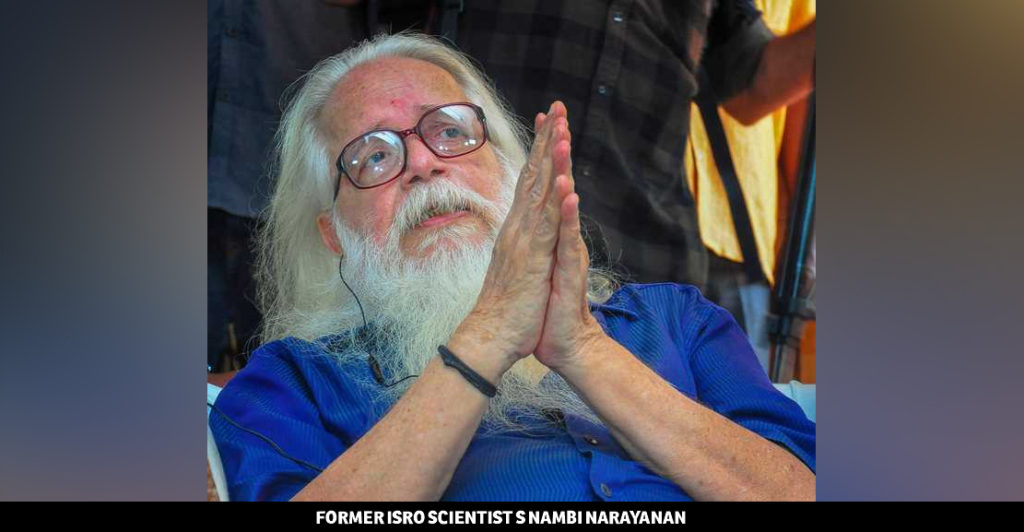
The apex court said the CBI may treat the panel’s findings as part of preliminary investigation and asked the agency to submit its report to the court within three months.
A bench headed by Justice A M Khanwilkar said the report of the three-member panel, headed by former top court judge Justice (retd) D K Jain, be kept in a sealed cover and it should not be published.
The top court rejected the submission of former DGP Siby Mathews, who was then heading the SIT probe team, that he was not heard by the committee while Narayanan was heard.
The bench, also comprising Justices Dinesh Maheshwari and Krishna Murari, said the committee was not to adjudicate the matter but it had to go through circumstantial evidence and form a prima facie view on the acts of omission and commission of erring officials.
The apex court was hearing the Centre’s plea seeking consideration of the report filed by the committee regarding the role of erring police officials in espionage case relating to Narayanan, who had been acquitted and was eventually awarded Rs 50 lakh compensation by the top court.
On April 5, the Centre had moved the top court seeking urgent hearing and consideration of the panel’s report terming it as a “national issue”.
The apex court had appointed the panel on September 14, 2018 while directing the Kerala government to cough up Rs 50 lakh compensation for compelling Narayanan to undergo “immense humiliation”.
It had ordered setting up of the committee to take appropriate steps against the erring officials for causing “tremendous harassment” and “immeasurable anguish” to Narayanan and had directed the Centre and state government to nominate one officer each in the panel. Terming the police action against the ex-scientist of the Indian Space Research Organisation (ISRO) as a “psycho-pathological treatment”, the apex court had in September 2018 said that his “liberty and dignity”, basic to his human rights, were jeopardised as he was taken into custody and, eventually, despite all the glory of the past, was compelled to face “cynical abhorrence”.
The espionage case, which had hit the headlines in 1994, pertained to allegations of transfer of certain confidential documents on India’s space programme to foreign countries by two scientists and four others, including two Maldivian women.
The scientist was arrested when the Congress was heading the government in Kerala.
The three-member investigation panel had submitted its report in a sealed cover to the apex court recently.
The CBI, in its probe, had held that the then top police officials in Kerala were responsible for Narayanan’s illegal arrest.
The case also had its political fallout, with a section in the Congress targeting the then Chief Minister late K Karunakaran over the issue, that eventually led to his resignation.
Over a period of almost two-and-a-half years, the panel headed by Justice Jain examined the circumstances leading to the arrest.
The 79-year-old former scientist, who was given a clean chit by the CBI, had earlier said that the Kerala police had “fabricated” the case and the technology he was accused to have stolen and sold in the 1994 case did not even exist at that time.
Narayanan had approached the apex court against a Kerala High Court judgement that said no action needed to be taken against former DGP Siby Mathews, who was then heading the SIT probe team, and two retired superintendents of police K K Joshua and S Vijayan, who were later held responsible by the CBI for the scientist’s illegal arrest.
“There can be no scintilla of doubt that the appellant, a successful scientist having national reputation, has been compelled to undergo immense humiliation. The lackadaisical attitude o

